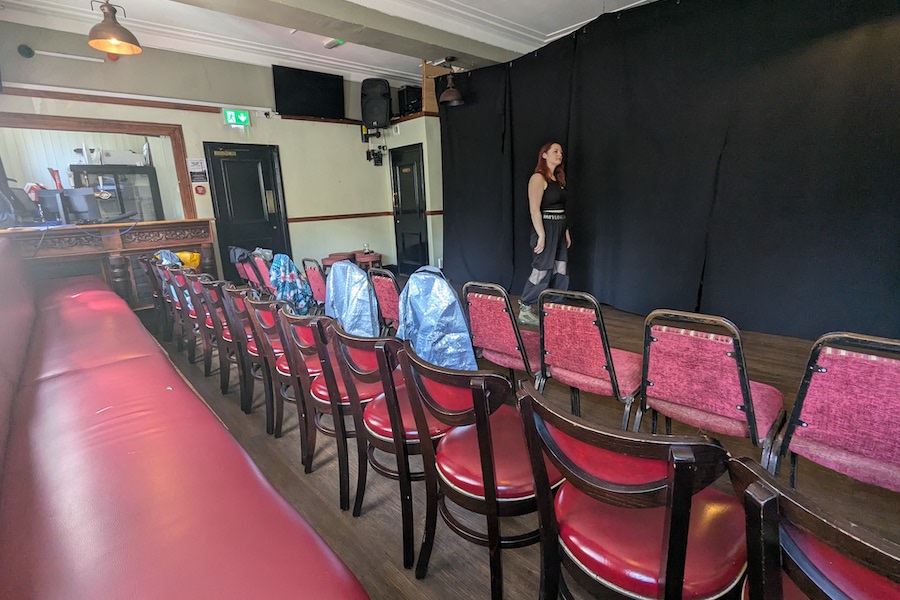Gareth Kavanagh, theatre producer and former landlord of the much-loved Lass O’Gowrie pub, remembers when its spot beside the BBC made it one of Manchester’s busiest boozers. “We were down the side of the BBC,” he said, recalling his years at the helm from 2005 to 2014. “So we were a busy, busy pub, and we did pub things very well; the place kind of looked after itself.
“Then of course the BBC closed and that building was emptied then knocked down, and all those busy lunchtimes, evenings and weekends vanished.”
Now, Gareth continues to work as an independent theatre producer, staging grassroots productions in Manchester pubs, most recently at The Seven Oaks, where he and his former business partner have created a low-cost performance space upstairs.
Keeping the spirit of indie theatre alive
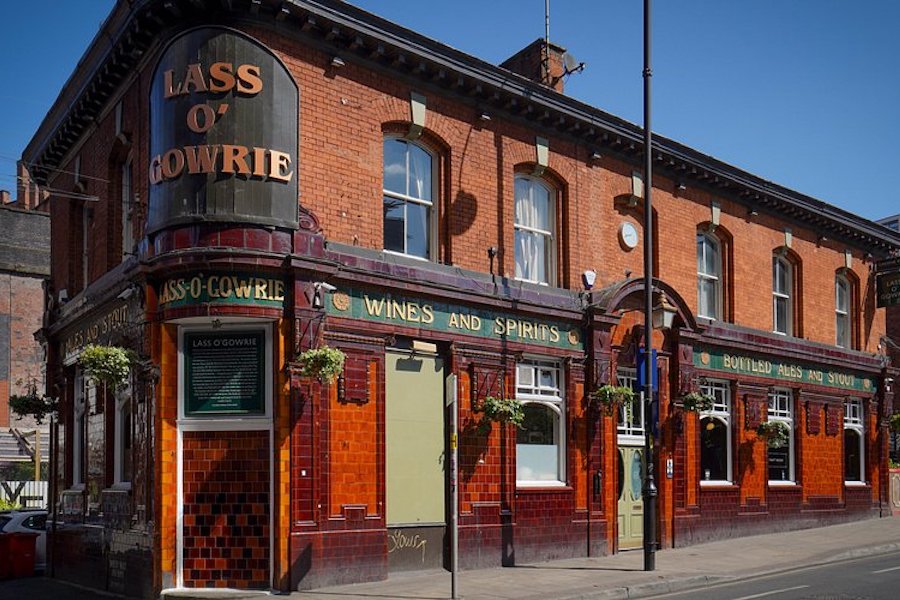 The Lass O’ Gowrie
The Lass O’ Gowrie
Fortunately Gareth had decided to diversify what people could find in the popular Charles Street boozer long before the issue of getting punters through the door became the centre of every landlord’s life. And it started with a friend’s partner at the time, an actor, asking if he could stage a play in the room upstairs, till this point a little-used manager’s lounge.
“He put on a Stephen Berkoff play called Harry’s Christmas, and it was very popular,” said Gareth. “I thought ‘maybe there is something here’, so we put some lights up and set up some equipment, and then over the next few years it developed a life of its own, which was really handy, because we needed to replace the lost bits of business.
“It worked out very well for us at the time, because it was a unique offering that you could only get there. Football’s great fun and exciting, but you can watch it anywhere. There’s plenty of places that have cheaper pints than us, but to get something unique you’d have to come to the Lass, and that was what it was about.”
Manchester’s independent theatre scene
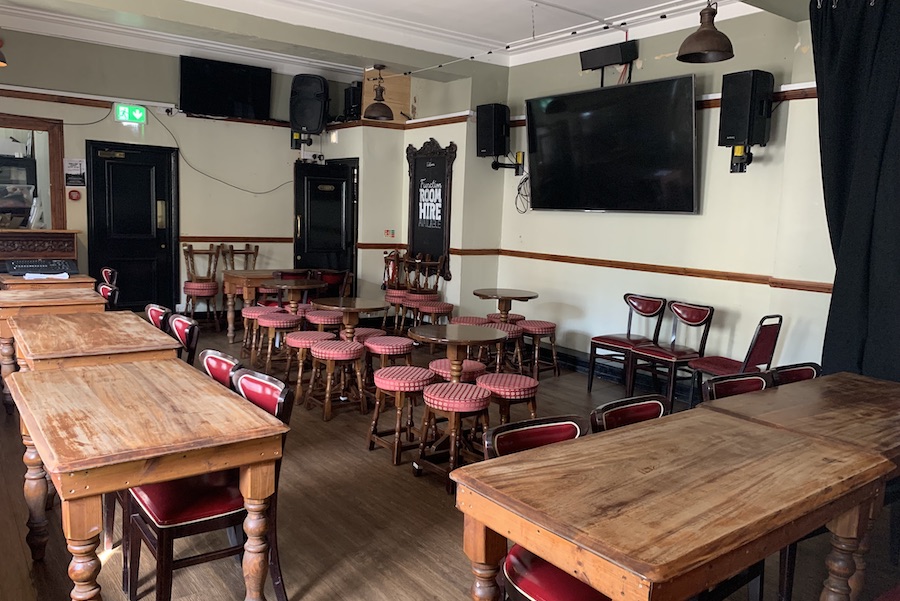 The Seven Oaks interior
The Seven Oaks interior
After leaving in 2014, Gareth continued to stage independent productions across Manchester and increasingly found the costs of producing plays in established venues to be too expensive, if the venues themselves were even still open. Meanwhile, pubs started finding themselves in dire financial straits as socialising spots, and how we enjoy ourselves, began to change.
“I found that over the years it had become very expensive and there weren’t many venues left,” he explained. “It’s very difficult when you start out, trying to find a venue where you can rehearse and put something on. So I had a chat with Patrick, who was my business partner at The Lass for all those years, and said it’d be really worthwhile if we each put some money in to get some equipment and try putting some stuff on upstairs at The Seven Oaks. So we started that in January of this year, and it’s been quite successful. It made more sense, weirdly, for me to spend money on a venue that I could then use for free.”
The Greater Manchester Fringe
Another local theatre producer finding his feet, after graduating from a drama degree, was Ross Thompson, co-founder and company director of Farewell Theatre Co. You can check them out on Instagram by clicking here.
When looking to stage the company’s play Death of the English Pub following its run at the Greater Manchester Fringe back in 2023, he found that while one night at an established venue would cost an average of £600, they could stage a three-night run in a pub for £360. “You never know if a play is going to flop or not until you put it on,” he said. “But you’re never going to take that risk at £600 a night.”
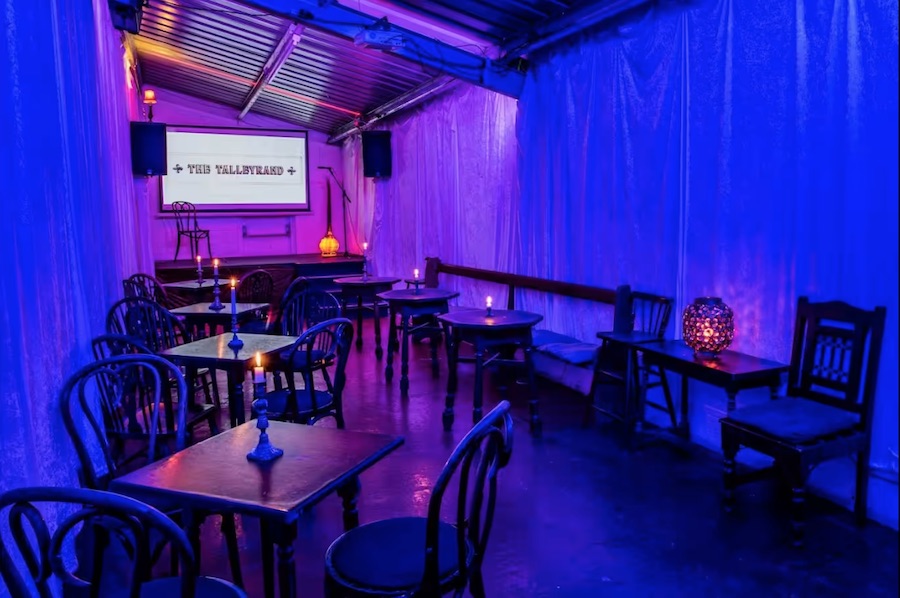 The Talleyrand’s theatre space
The Talleyrand’s theatre space
What followed for Farewell Theatre Co was an immersive and very appropriate production in The Talleyrand in Levenshulme, the audience not simply observing the action but a part of it, the fictional Death of The English Pub bumping up against real life. “I think theatre is often seen as this elitist thing, and getting people to come to the theatre can be quite tricky in itself. So if we bring the theatre to the local people, then that’s even better. It was about getting people back into their local and having fun with it.”
And it is in this atmosphere of uncertainty, for pubs and grassroots plays alike, that a solution seems to present itself; pubs need people spending at the bar on quiet weeknights, not to mention maintaining the pub as a vital part of British social life, and grassroots theatre companies need affordable spaces to stage their work and build an audience. Why not join forces?
“It’s eye-wateringly expensive to stage plays at some of these venues”
“It’s eye-wateringly expensive to stage plays at some of these venues,” said Gareth. “And I just think it’s the wrong way to do it. I think you’re better off having more stuff on at a lower price, and giving people a space to develop and try things out, and then maybe they get to move on to bigger things. After the Lass many of us went on to do all sorts, and that would not have been possible without doing bonkers things above a pub, and not having to lose your shirt over a play.
 Gareth Kavanagh
Gareth Kavanagh
“As for pubs, they’re under a huge amount of pressure, no doubt. It was hard 15 years ago and it’s even harder now. It’s a constant battle to get new people through the door. So this is good for theatre, because you’re offering something new to people who drink in the pub and they’re a potential future audience, and it’s brilliant for the pub, because you get new people through your door who look at the place and go, ‘Oh, this is really nice, I could come here for a drink’. It’s definitely working at The Seven Oaks and I don’t see why it wouldn’t work elsewhere.”
So if this approach were more widespread, what would it mean for the grassroots culture of the city and its treasured but endangered pubs?
“It’s a win-win for everybody involved,” said Ross. “The pubs get money behind the bar when it’s going to be quiet, and we get somewhere to perform for an audience; it’s a no brainer. Think of the amount of theatre students coming out of all the unis around the city. Theatre doesn’t pay that well, but it’s where some of the best stories are and some of the newest writing and local voices, so to have that in a local boozer makes sense to me, especially in a city of culture like Manchester.”
Theatre at Seven Oaks Stage
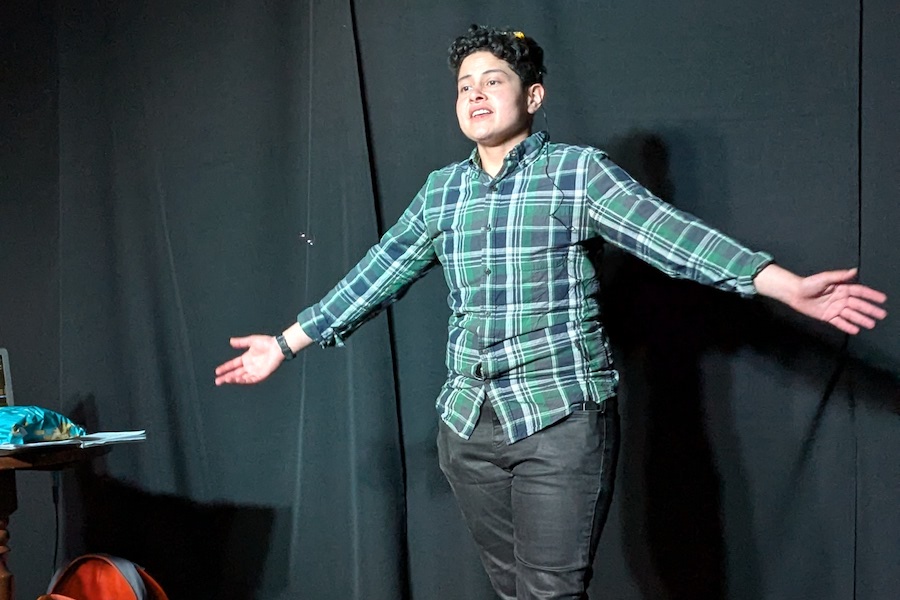 A production at The Seven Oaks
A production at The Seven Oaks
Gareth looks at the £2000 cost of setting up the Seven Oaks stage, and to the decision-making of government bodies and how they distribute funding. “I would love to think that someone from the Arts Council would be imaginative enough to put together some money for a pot of equipment and just say, ‘Okay, we can fit out four pubs for two grand each’. Two grand is a rounding error to them, but the way the funding pots are set up, they wouldn’t consider that, or have the imagination to put in place that sort of infrastructure.
“It would make a tremendous difference, and make for a much more healthy ecosystem. It’s about preserving and valuing those small spaces that people start in and saying, ‘These are important’. I’d say they’re more important than the equivalent of the Co-op Live.
“It’s all very well having HOME and Aviva Studios that are all publicly subsidised, but if you can’t actually access these spaces to start with, and build your reputation and audience up then it’s very difficult. But if the grassroots scene is allowed to develop then it does make for a healthy ecosystem. Then what happened successfully in terms of saving small music venues could happen in terms of theatre. It’s a very bleak landscape out there at the moment, but I hope that can change.”
You can find out what’s on at Seven Oaks by clicking here
